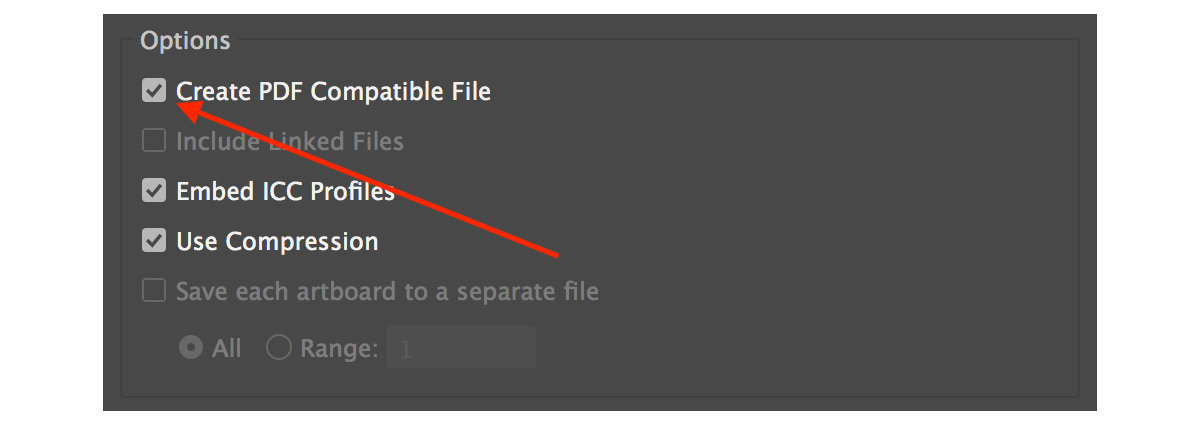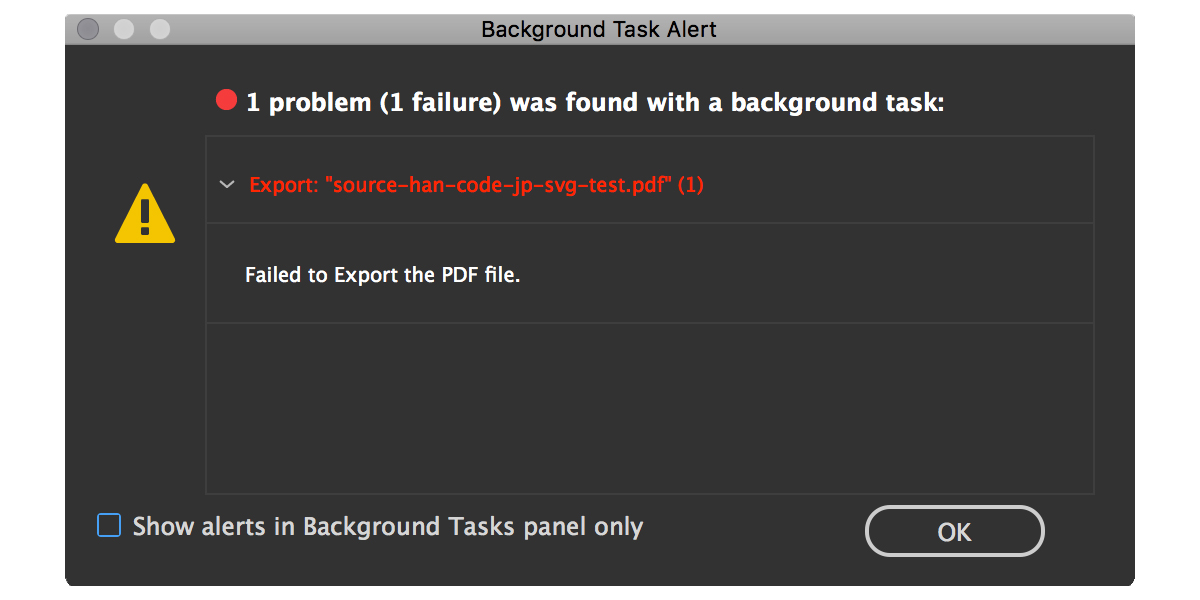![]()
Today’s article provides useful details for our relatively small number of customers who author documents with our flagship Creative Cloud apps and make use of CID-keyed OpenType SVG fonts. A rather broadly-deployed CID-keyed OpenType SVG typeface is the open source Source Han Code JP family, whose development details are described in the very first section of this article.
While it is fully possible to build OpenType fonts—CID-keyed or otherwise—that include an 'SVG ' (Scalable Vector Graphics) table, the infrastructure to support them in apps is still maturing. That is the purpose of this article, so please continue reading if the details interest or otherwise affect you.
Source Han Code JP—源ノ角ゴシック Code
Source Han Code JP (源ノ角ゴシック Code), which is a derivative of the region-specific Japanese subset version of Source Han Sans (源ノ角ゴシック), is one of the very first CID-keyed OpenType fonts to include an 'SVG ' table whose purpose is to include SVG artwork for particular characters that are supported by a font, such as emoji (絵文字). This allows glyphs to be rendered using colors, gradients, and even animation. Source Han Code JP supports colored versions of the following seven (7) characters via its 'SVG ' table:
| Code Point | Character | Character Name |
|---|---|---|
| U+2615 | ☕ | HOT BEVERAGE |
| U+263A | ☺ | WHITE SMILING FACE |
| U+263B | ☻ | BLACK SMILING FACE |
| U+2764 | ❤ | HEAVY BLACK HEART |
| U+1F4A9 | 💩 | PILE OF POO |
| U+1F512 | 🔒 | LOCK |
| U+1F916 | 🤖 | ROBOT FACE |
The image below illustrates the actual color glyphs in Source Han Code JP:

Adobe offers three flagship authoring applications: Illustrator (aka AI), InDesign (aka ID), and Photoshop (aka PS). Illustrator is used for creating vector artwork and also for authoring short documents. InDesign is a document-authoring app with unparalleled typographic prowess. Photoshop is used for creating raster artwork, but is also used for many other purposes, such as for prototyping websites.
Adobe Illustrator CC
The first version of Illustrator to support OpenType SVG fonts is Illustrator CC Version 22.0.0, which was released on 2017-10-18, meaning just over two weeks ago. While name-keyed OpenType SVG fonts appear to function without problems, it is not possible to save a document if it references a CID-keyed OpenType SVG font, such as Source Han Code JP. The following is the English version of the error dialog that appears:

That is not entirely true, because a work-around is to uncheck the “Create PDF Compatible File” option when saving the document:

Of course, unchecking that option has the potential to diminish the usefulness of the document.
Adobe InDesign CC
The most interesting case is perhaps InDesign. InDesign CC Version 13.0, which was released on the same date, supports OpenType SVG fonts as a technology preview. While it is possible to compose documents using CID-keyed OpenType SVG fonts—and save them—it is not possible to export to PDF. The following is the English version of the error dialog that greets the customer, which is arguably better than the one that Illustrator displays:

Name-keyed OpenType SVG fonts appear to function without issues.
The only work-arounds of which I am aware for CID-keyed OpenType SVG fonts are to print the document directly to a printer, or to print the document to a PostScript file then feed it to Distiller to make a PDF, but both work-arounds result in the Black&White glyphs from the 'CFF ' (Compact Font Format) table being used.
2017-11-17 Update: I am very pleased to state that the InDesign team went above and beyond the call of duty by fixing this issue, which was released today as part of the Version 13.0.1 update.
Adobe Photoshop CC
The first version of Photoshop to support OpenType SVG fonts is Photoshop CC Version 18.0, which was released on 2016-11-02, meaning exactly a year ago. Because Photoshop deals with raster images, exporting artwork to various raster formats has very few hurdles. Good job, Photoshop!
In closing, I sincerely and humbly request that our customers be patient while our team engages with the Illustrator and InDesign development teams to remedy these short-term issues that affect a somewhat limited number of fonts.
